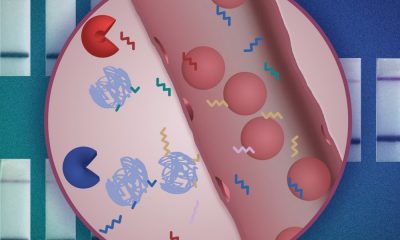A California couple’s wish to become parents to a child without a cancer gene went horribly wrong when a fertility center implanted an embryo with the genetic code, something they had been specifically told not to do.
The couple is now suing the fertility clinic, Huntington Reproductive Center (HRC), in Pasadena, alleging it used an embryo with a cancer gene.
The plaintiffs, Jason and Melissa Diaz, went the IVF route, hoping to prevent their child from inheriting a form of gastric cancer, as both of them were reportedly carriers of the mutations.
Melissa Diaz carries the BRCA1 genetic mutation that increases the chances of breast and ovarian cancer. Jason, on the other hand, has a rare mutation that increases the probability of getting stomach cancer.
Jason eventually developed stomach cancer when he was 32, as per CNN. He is currently in remission after the stomach cancer diagnosis in 2018, ABC7 reported.
The couple wanted to freeze several embryos and get them tested to find the ones that do not have the cancer gene and use those in the IVF. This happened in 2020 when the embryos were created, and the couple was now parents to a one-and-a-half-year-old son.
The mistake came to light last summer when Jason and Melissa wanted to expand their family. Melissa, who had requested a copy of her embryo report from HRC, said she saw handwritten notes, which claimed the embryo with the cancer gene was used, meaning their son has the stomach cancer mutation.
The lawsuit alleges HRC did not disclose its history of the previous mistake, as well as its ability to identify them. Furthermore, separate allegations of negligence and battery are in arbitration.
“Recognizing its error, HRC Fertility then attempted to hide the truth. It produced to Melissa an altered copy of her records that omitted the crucial information of which embryo it transferred,” the lawsuit stated.
“And we would have never known,” said Jason. “We would have gone his whole life not knowing until we would found out that he had stomach cancer. … There’s an 80% likelihood, in his lifetime, he’s going to develop cancer.”
Now, the only option before their son is to get a total gastrectomy when he turns 15, based on their history.
“HRC promised Melissa and Jason that it was not going to transfer an embryo that had the stomach cancer gene,” said their attorney Adam Wolf. “Everybody was incredibly clear about that, and that’s why their embryos went through genetic testing.”
The parents said that HRC recommended getting tests done, and assured them the testing company sent accurate results. According to the couple, HRC misread the results.
The couple hopes that by bringing their plight to the forefront, a change can be brought about to make the process more transparent.
“Nothing they can do can’t make it right,” said Melissa. “Like, what’s going to stop my son from going through all this? Nothing. So, I’m just … I’m very upset, very angry, very disappointed that I trusted a professional clinic and ended up doing the complete opposite of what we wanted.”
As for the HRC, they claim the issue was, in part, in the genetic testing.
“We deeply empathize with this family’s situation. However, the patients associated with the case sought genetic testing and genetic counseling outside of HRC Fertility, and with an outside party; they wished to have a male embryo transferred, which we carried out according to the family’s explicit wishes and in accordance with the highest level of care,” said in a statement to ABC7.
















